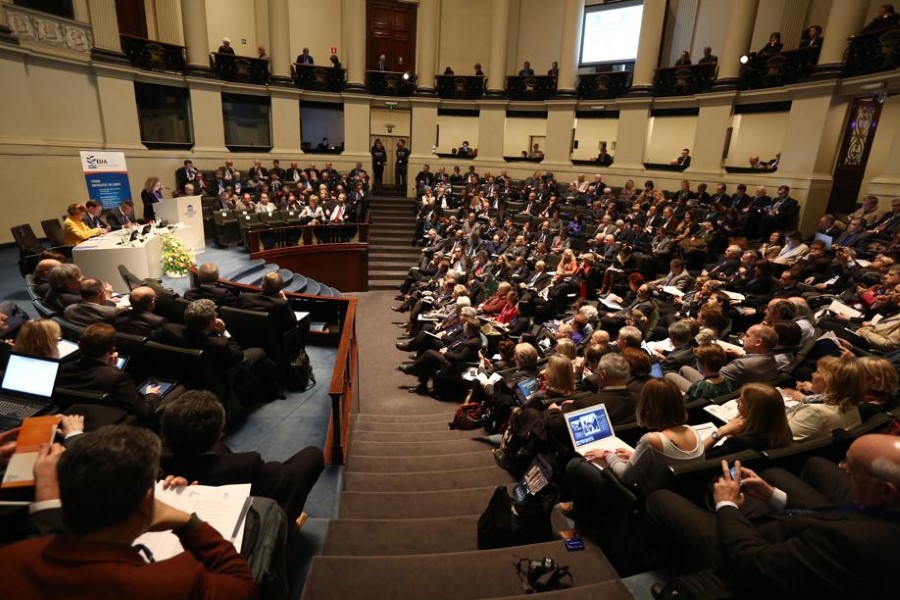There has been a lot speculation, shouting matches, opinions, dubious accusations etc. that flew around concerning digital currencies, or like some call them crypto currencies. Some journalists from the more traditional media made unfounded accusations like “Mt. Gox has crashed so Bitcoin will follow suit”. If professionals and academics read things like that what do they think? Are there some that are sceptical or what is the deal? It does seem it’s “all quiet on the academics front” so why not do an interview with a prominent member of the academic establishment and hear his views on the whole digital currency matter.
The professor is one of our journalists friends and is quite famous in his field of expertise, namely economics. However due to certain demands on the professor’s part we will not use his real name. Nor will we publish the university’s name, although we will mention that the university is ranked as one of Europe’s top 10 best universities.
Serge: Do you own any digital currencies like Bitcoin or other altcoins and why?
Prof.Dr. Alexandre: I recently bought a couple Bitcoins when they were low. I do not know the exact number but it was about 1200 Euros in total. Now this might seem quite an investment but if the Bitcoin price even rises with 20% I could sell it off and make a tidy profit. As you know I am still a day trader in my spare time and some habits are quite hard to break. This buy/sell/buy is all hypothetical of course because I see that Bitcoin, and the technology behind the digital currencies in general, are worth pursuing.
As for other altcoins I will name a few but I will not go into detail on the how’s and why’s and I will pick out only a couple of altcoins. That is something your readers need to figure out for themselves. I have Blackcoin, Litecoin and dogecoin. I know some people like to have all the information given in to their hands (preferably with a summary on top of the information heap).
It is best to do information gathering yourself. I suggest the academic approach. If you want to get unbiased information or a visual on some trend, you will need to do a lot of research and make a list of the positive and negative aspects. Be sure to do adequate research. What I mean by that is that you need to focus on more than just 1 or 2 sets of parameters or sources. Read up, make the language your own and read as much as you can on said subject or research parameters. After doing all that research it is up to you what to do. Oh and for Pete’s sake don’t dismiss anything. Try to keep an open mind about information, be it source material like a white paper or a news article.
Serge: is there something you do not like about digital currency ( or some services)?
Prof.Dr. Alexandre: Yes there is. The numerous altcoins is a bit annoying. Every day there will be some new coin or coins coming out with promises to “dazzle the crypto world” and “dethrone Bitcoin”. If you really look closely at those altcoins they are nearly identical copies of other coins, sometimes with one or two things different. It is like one of my American friends love to say: “It’s the same game; they only change the tune so it would look nice and new”.
When dealing with these “practices” in the altcoins, I always ask the question: “ what makes your coin so special”. Most of the time the developers or spokespersons are saying things like “ yes we are better than that coin because in the near future we will….”Great that is in the future, not now so basically you are a carbon copy of your “competitor”.
Other times the developers try to bamboozle you by using technical terms ( that is why you need to understand the language). The best way to do here is to show them you know your stuff and try to expose them (taking pictures or screenshots from your conversations, etc.). Most of the time, the reaction you receive is quite funny. Some get really angry; others man up and say point blank that it is a scam and that they would pay me X amount of BTC to keep it quiet. I do not accept this behaviour and nor should anyone in the crypto community.
The digital currency community need to weed out these practices and react to them when they occur. We do not need to give extra ammunition to some of the already biased media outlets.
Another thing that bothers me quite a lot is that the news sites, or what they think they are, are seriously amateurish. There are exceptions but honestly the self-proclaimed big news sites like coindesk and cointelegraph are seriously inconsistent. What I mean by that is that one day you get really good articles that seem to be unbiased and objective. The next day you have articles that are 9 lines long, are full with mistakes or even completely fabricated news.
The writing mistakes and typos do not bother me that much in general. However the 9 lines for 1 sentence and the fabricated news reports and statistical “data analysis” do get to me. Typos sneak in in every work: news reports, my own presentations and lessons, academic thesis’s and papers, etc. The fabricated bs is something entirely and is usually only created to either drive the price of a share/stock/altcoin or bitcoin up or down. Then we are talking about market manipulation and that’s something I do not tolerate.
This is also one of the main reasons the mainstream society isn’t taking digital currencies seriously. Too much pump and dump schemes and rotten apples that hide inside the crypto community according to them. They are right of course, to a certain degree.
I do have something to add though. Some sites use a lot of colours, like cointelegraph. Colours are good to underline the importance of said article but if you do it with every article it is unprofessional and looks kind of childish. The people that run cointelegraph might not like this view but me, and other business people look down on this practice (some even ridicule the site, which I find it a bit harsh). I failed a student’s thesis because she worked too much with colours. Professional people do not overdo the use of colours.
Serge: Now a question about Bitcoin and business. Do you think Bitcoin will add stability and more versatility if it is incorporated into a business model of a company?
Prof.Dr. Alexandre: Well Serge I did quite agree with your statements when you were a guest speaker at my classes in October. So yes I think incorporating different digital currencies like Bitcoin and others will create a better “safety net” for companies. As you described the companies do have a better security position to withstand financial troubles, especially in times like these.
However business owners should ask questions and do some research and ask local crypto enthusiasts before incorporating any digital currency into your business model or business strategy. You definitely need to check with your government because policies might vary.
For those who think it will be a lot of work and extra fees I can tell you this: no it is not a lot of work. It is fairly easy and the costs will not be as much as the traditional payment systems.
Serge: Is Bitcoin the solution for our current problems?
Prof.Dr. Alexandre: Well not exclusively. Like I said the technology and the ideas behind it are excellent. In this day an age transparency is key, look at blockchain. Everything is “research-able” so to speak. It may take you a long time but the information is there. They way I see it is that the financial sector needs to get their nuts out of their “manpurse” and really examine the benefits of this “new currency”. I did not say Bitcoin is “the” solution to our problems it is “a” solution. Bitcoin is rife with some problems, like the long waiting time and other things. There alre also innovations that some altcoins have that aren’t in Bitcoin yet. However Bitcoin is the biggest “digital currency” out there and I think if a company wants to experiment with a digital currency they should begin with Bitcoin.

